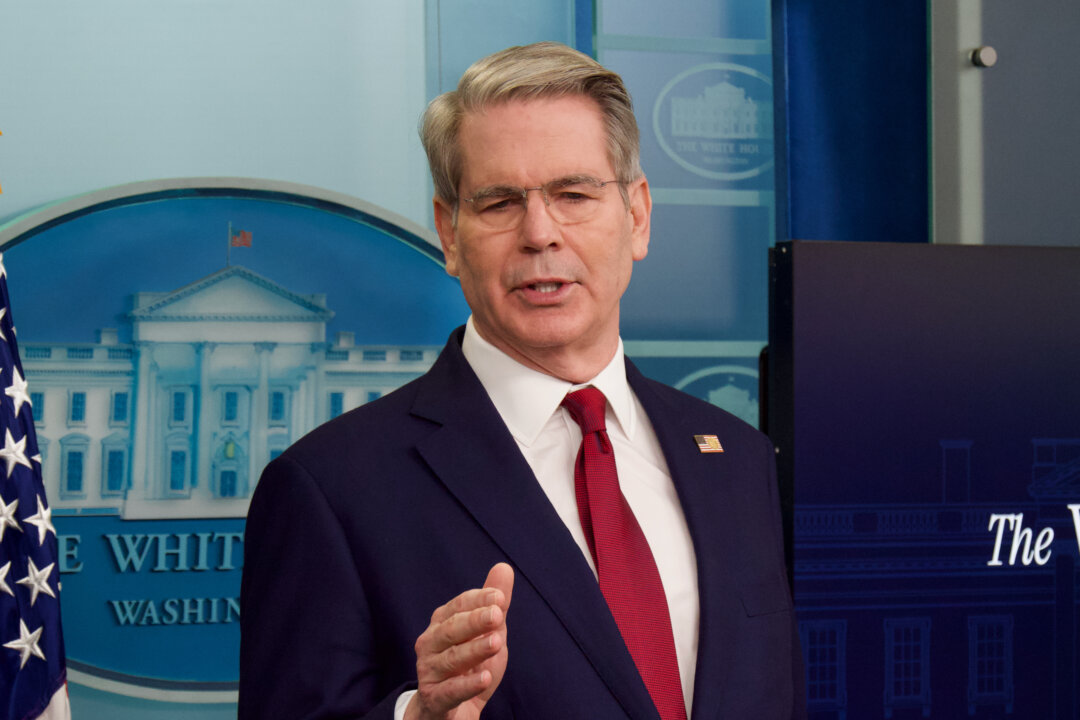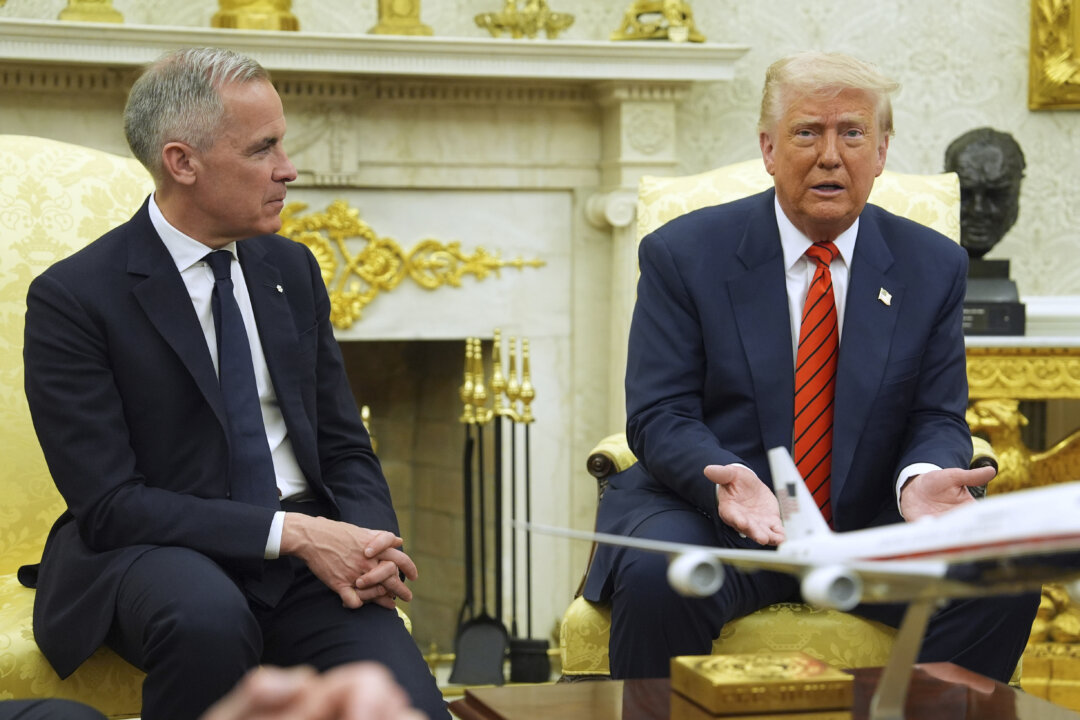Conclave frontrunner Aveline’s approach to Islam completely inverts Church teaching – LifeSite

Tue May 6, 2025 – 12:24 pm EDTTue May 6, 2025 – 12:25 pm EDT
(LifeSiteNews) — Cardinal Jean-Marc Aveline has been presented as a leading candidate to succeed Francis at the coming conclave. Before Francis’ death, Vatican insiders told LifeSiteNews that he “will be the next pope,” and Edward Pentin and Diana Montagna’s Cardinalium Collegii Recensio states that he is “allegedly Pope Francis’ ‘favorite’ cardinal to succeed him.”[1]
Understanding Aveline’s theology has become an urgent task. In the first three parts of this series, we examined how Aveline systematically reinterprets the Catholic religion.
- Part I: He reimagines the role of false religions in salvation.
- Part II: He redefines the universality of Christ’s mediation to include those outside the Church.
- Part III: He reconfigures the Church’s mission around dialogue, rather than conversion.
- Part IV: He presents Rabbinic Judaism as a parallel “true religion,” and a necessary source to which the Church must turn in order to understand herself.
Aveline’s approach to Judaism leads to a Church that renounces her mission to convert all nations, and seeks from other religions “a service of purification”:
The world’s religions have become a question addressed to Christianity, which must, in their presence, reconsider its claim and thus receive from them, at the very least, a service of purification.[2]
This part will explain how Aveline derives ideas such as this from the “lessons” taught by Rabbinic Judaism, how he applies such ideas to the other world religions, and the dire results that follow.
As with the previous part, much of the material for this article in based on Aveline’s 2010 article “Les enjeux actuels des relations entre juifs et chrétiens” (The current issues in Jewish-Christian relations).
I. JUDAISM AS TEACHING THE CHURCH ABOUT RELIGIOUS PLURALISM
In the last part, we saw that Aveline’s subversive approach to Judaism follows these clear steps:
- Misrepresent the Mosaic Covenant as being of ongoing validity
- Misrepresent Judaism as the continuation of the Mosaic religion
- Create a false understanding of the Church’s relationship with Rabbinic Judaism
In itself, this approach is an inversion of doctrine and theology. However, Aveline takes this inversion, and places it at the service of another, more drastic inversion still. Aveline’s process continues:
- Use this false understanding of Judaism to “deepen” what he calls “the mystery of the differentiated unity of God’s work”
- Use this “mystery of the differentiated unity” as the lens through which to understand other non-Christian religions, and thus explain how they retain “salvific or revelatory value.”
He specifically claims that his treatment of Judaism can “help” the Church by serving as the model for his wider theology of religious pluralism.
The final step of Aveline’s program is as follows:
- Use the “salvific or revelatory value” of world religions to recast the concept of religion itself in purely naturalistic terms.
This explains how he justifies saying that “[b]asically, religions are ways for men and women to seek answers to the great, simple questions of life”—which represents the collapse of his whole synthesis into naturalism, and apostasy from Christ.[3]
Differentiated unity is a divine mystery, willed by God
Aveline asserts that Jewish-Christian dialogue reveals a differentiated unity between the Church and Judaism, and that this—rather than “homogenization”—is positively willed by God. He explains his concept of differentiated unity as follows:
On the one hand, Jewish-Christian dialogue, because it invites reflection on the theological meaning of difference, can help unmask some ambiguities in interreligious dialogue that might too easily yield to the sirens of a homogenizing tolerance.
On the other hand, the experience of interreligious encounter can enable a theology of the Jewish-Christian relationship to deepen the mystery of the differentiated unity of God’s work, in the form of a call to share the gifts that each (Jew, Christian, and “other”) has received in service of the Promise made in Abraham to all the human family.[4]
He refers to “a certain ideology of tolerance emerges that risks confusing consensus with uniformity,” and cites Moses Mendelssohn’s warning for Christians against desiring conversion or religious unity:
Let us not create harmony where diversity is clearly the plan and ultimate aim of providence. […] Why make ourselves unrecognizable by masquerades in the most important matters of life, since God did not mark each of his own features on the face in vain?[5]
Likewise, Aveline cites Christian de Chergé, who describes religious difference itself as a gift of God:
‘And if difference finds its meaning in the revelation that God makes of what He is? Nothing could prevent it from being conceived as faith itself, that is to say, as a gift from God.’
Extending the Lubacian intuition of “the extension of the dogma of the communion of saints”, de Chergé drew attention to the strange interdependence that emerges in the differentiated unity of salvation history.[6]
Aveline comments on all these ideas:
The Jewish-Christian relationship, because it prevents each tradition from defining its identity without including in this definition an otherness, either as a root more or less assumed, or as a fruit more or less recognized, constitutes an indispensable foundation for any theological research on [what de Chergé calls] ‘the divine meaning of what humanly separates us.’[7]
At the end of the 2010 essay in question, Aveline waxes poetic on the relationship between the Church and Rabbinic Judaism:
‘Between the burning bush of Sinai and the silence of Calvary, the vivid flame of faith traces the furrow of sparks where theologies will pass indefinitely,’ Stanislas Breton once wrote.[8]
Whatever Breton may have meant by these words, Aveline’s application once again assumes that the Rabbinic Judaism of Yavne is still the religion of Sinai (rather than of Yavne), and refers again to de Chergé’s words in attributing a “divine meaning” to its relationship with the Church:
Thanks to the experience of interreligious dialogue, it seems that a new stage of this furrow of sparks opens before us today, Jews and Christians, provided that, together scrutinizing ‘the divine meaning of what humanly separates us,’ we accept to share our hope under ‘the flash of encounter.’[9]
However, Aveline takes the supposed “differentiated unity”—which began as a novel “exception” conceded to Judaism, based on the Church’s Old Testament heritage—and extends it to all religions.
After all, if the religion which explicitly rejects Christ can be said to have a continuing covenant and vocation, then what other religion can be denied the same?
Judaism as the catalyst for Aveline’s interreligious theology
The extension begins by Aveline’s presentation of religious pluralism as a “problem” to be reflected upon—but without regard for the traditional understanding, namely that false religions are the result of sin, and that God permits their existence for the sake of a higher good. He writes:
Religious pluralism compels each religion to rethink the relevance of its claim to universality.[10]
This “problem,” he argues, is to be resolved in light of the supposed relationship between the Church and Judaism. He presents his vision of Judaism as the foundation of his broader theological system—a vision of religious pluralism which obliterates the very concept of a “false” religion in the first place.
He explains that the modern approach to Judaism gave rise to a new approach to religious pluralism in general:
Given the magnitude of the issues to be addressed, the following reflections set out only a modest goal, starting from the following observation: whereas the necessity of a Christian position on Judaism after the tragedy of the Shoah led the conciliar assembly of Vatican II beyond its original project, even towards an opening to dialogue with the religions of the world […][11]
Aveline attributes this change in attitude to Vatican II’s Nostra Aetate:
[T]his work on Judaism, in some sense ‘imposed’ by John XXIII on the conciliar assembly, that it gradually decided to attempt, by broadening its scope, to lay the foundations of a dialogical and cooperative attitude of the Church towards non-Christian religions.[12]
He cites a very revealing text from Cardinal Bea, explaining the extension of this differentiated unity to all religions:
To this Declaration, one could apply the biblical image of the mustard seed. At the beginning, indeed, it was only a brief declaration on the attitude of Christians towards the Jewish people.
With time, and especially thanks to the conciliar interventions, this seed has almost become a tree, in which now many birds find their nest, I mean in which all non-Christian religions now have their place, at least in some manner.[13]
This idea was expressed with even greater clarity by Cardinal Walter Kasper, in an address for the 37th anniversary of Nostra Aetate in 2002, presenting the novel approach to Judaism as the protoype in interreligious theology:
[W]e Catholics became aware with greater clarity that the faith of Israel is that of our elder brothers, and, most importantly, that Judaism is as a sacrament of every otherness that as such the Church must learn to discern, recognize and celebrate.[14] [Emphasis added]
It is in this way that novel exceptions for Judaism have become the rule for all religions.
The result of the extension of ‘differentiated unity’ to all religions
If we consider each aspect of Aveline’s novel approach to Judaism, we can see its trajectory towards an interreligious theology:
- The refusal or inability to call Judaism a false religion becomes the refusal to call any religion false[15]
- The claim that the Mosaic Covenant remains valid becomes the claim that all religious dispensations are valid—made palatable to conservatives by the lip-service to “christic mediation.”
- The concession of a vocation and mission to Rabbinic Judaism becomes a concession to all religions.
- The supposed co-responsibility of Jews and Christians for each others’ response to God through their respective religions becomes a co-responsibility for all men in all religions
- The “mystery of the differentiated unity” with Rabbinic Judaism becomes the “mystery of religious pluralism” in general.
- The need for the Church to learn from and to be purified by Judaism becomes a need for all religions to purify each other—starting with the Church.
- The asymmetrical dependence of the Church on Judaism for self-understanding becomes an obligation to respect all religions, without expecting the same in return
- The denial of an evangelical mission to the Jews become a denial of evangelization itself—No mission to the Jews becomes No mission to anyone.
These propositions, taken together, dismantle the foundations of Catholic theology and invert the Church’s entire mission along the lines which we have already seen.
However, they enable Aveline to say what no Catholic could say without blasphemy or apostasy:
On the eschatological horizon of the Promise, all peoples share in the mission that the Father entrusted to the Son and to the Spirit.[16]
This is also why Aveline approvingly cites Cardinal Ratzinger, in a work which has not been published in English, who lays bare the full scale of the revolutionary synthesis, assuming many novel and false ideas as true, and using them to call for the “purification” of Christianity by false religions:
This is why the question of the relationship between Christianity and the religions of the world is absolutely pressing for today’s faith: it is not the result of vain curiosity that seeks to construct a theory on the destiny of others—this destiny is decided by God, who does not need our theories; if it were only that, our search would be futile and even misplaced.
The world’s religions have become a question addressed to Christianity, which must, in their presence, reconsider its claim and thus receive from them, at the very least, a service of purification.
As soon as this question is approached, it suggests how the Christian can also understand the necessary place of these religions in the history of salvation.[17]
Aveline explicitly adopts Ratzinger’s language and makes it his own. Thus, the true trajectory of the program is unveiled: the Church is no longer the bearer of the truth that judges the world—she is the one that is judged by the world and other religions, and purified in their light.
We are now only a few steps away from the apostasy which abandons Christ, as well as the concept of revealed religion, which it replaces with a vague humanitarianism.
Let us see how this is manifested in Aveline’s treatment of Islam.
II. DIFFERENTIATED UNITY TO NATURALISM: AVELINE’S METHOD APPLIED TO ISLAM
Aveline’s vision of Rabbinic Judaism as a partner in salvation history, co-responsible for God’s plan and necessary for the Church’s self-understanding becomes the paradigm and catalyst of all his interreligious theology.
His treatment of Islam follows the same naturalistic, problematizing logic that underpins his broader theology, and the precise trajectory established in his treatment of Judaism. As with Judaism, Aveline presents Islam not as a false religion to be rejected, but as a culturally rich and spiritually valuable tradition—one that participates, in some way, in God’s plan.
This cultural affirmation is matched by a theological one. Aveline does not openly claim that Islam saves—but he systematically undermines the necessity of leaving it and conversion to the Catholic faith. As in his treatment of Judaism, the objective truth of the Catholic religion gives way to vague references to Christ’s universal role through “christic mediation”, and to a language of “co-responsibility” that treats conversion as optional.
Lip-service to Our Lord Jesus Christ
As with Judaism, Aveline’s approach to Islam pays occasional verbal homage to Catholic teaching on Christ’s uniqueness—only to drain it of its theological meaning and all practical consequences.
In a 2019 interview with Famille Chrétienne, he refers to the Acts of the Apostles, affirming—at least verbally—that “Jesus Christ is the Saviour of the entire world.” But instead of stating this as an objective truth, he qualifies it as “the faith of Christians.”[18]
But is Christ the Saviour because Christians believe it—or because it is true? This kind of phrasing—also found in other parts of Aveline’s work—suggests a studied ambiguity.[19] It reflects the rhetorical strategy underpinning his notion of “christic mediation”: affirm the terms of the faith, while emptying their substance and neutralising their implications.
Aveline’s treatment of Islam illustrates how this works in practice. In the same Famille Chretienne interview, he admits that “the path of Islam is not sufficient for salvation,” but then immediately qualifies it with the same studied ambiguity already mentioned: he praises Islam’s “spiritual, moral, and socio-cultural riches,” and exhorts Catholics to look for “traces of the Spirit’s work” within it.[20]
Instead of inviting Muslims to leave their errors and be saved, he encourages Christians to find value in the errors themselves.
Aveline again invokes Christian de Chergé, who taught that Muslims and Christians are to “respond together” to God’s call—and that a “living faith” cannot coexist with the Church’s anathemas—especially those concerning other religions.[21] The refusal to call Islam a false religion, and indeed the tacit rejection of true and false religion as meaningful categories, runs throughout Aveline’s synthesis. The Church’s historic claims are not directly and openly rejected, but are subject to a “conspiracy of silence.”
This is the true function of his theory of “christic mediation.” It does not reinforce the necessity of Christ and his Church: it allows him to retain Catholic language while justifying religious pluralism, and implicitly affirming differentiated unity and the legitimacy of multiple “covenants” between man and God.
Catholics need to learn from Islam—in ways that St Pius X condemned
As with Judaism, Aveline claims that the Catholics must learn from Islam and its adherents, in order to understand themselves and the Church.
In Marseille, he praises the friendships formed between Catholic youth and Muslims during charitable work. He speaks approvingly of their “discovery of Islam as it is lived in the streets and housing estates.”[22]
In a 2024 interview with Le Verbe, Aveline expands on this theme in even more naturalistic terms.[23] He speaks warmly of students from wealthy suburbs who come to serve in poor Muslim districts, and who leave spiritually enriched not only by their charitable work, but by their contact with Islam itself:
They often arrive from relatively affluent neighborhoods in the Parisian suburbs, carrying ideas and apprehensions about Islam. But after six months, they leave with Muslim friends, and that, to me, is the fundamental shift. Until you have a Muslim friend, you have only ideas about Islam—or worse still, the ideas of others.[24]
To foster this transformation, Aveline established “Muslim-Christian family days”—deliberately excluding priests and imams—so that ordinary families could spend time together discussing “simple aspects of everyday life,” such as “how to educate our children regarding water consumption.”[25]
This cannot help but recall Pope St Pius X’s warnings in Notre charge apostolique, where he condemns the dangers to the faith posed by interfaith events like Aveline’s. Reflecting on Le Sillon’s interreligious initiatives, he asks:
This being said, what must be thought of the promiscuity in which young Catholics will be caught up with heterodox and unbelieving folk in a work of this nature? Is it not a thousand-fold more dangerous for them than a neutral [e.g., avowedly secular, rather than interreligious] association?[26]
What emerges from all this is unmistakable: it is, again, his differentiated unity, coexistence and religious pluralism as a religious formation for Catholics. Islam is not treated as a grave obstacle to grace and salvation, but as a gift to the Church.
Like Rabbinic Judaism, it is presented as a “true religion,” insufficient for salvation in itself (a lack resolved by the “christic mediation,” which is presumed to extend to it by default), but nonetheless a source of spiritual formation and mutual enrichment. The Church’s role is no longer to evangelize Muslims, but to encourage her children to from Muslims how to understand Christianity.
Converts—to be cherished, but definitely not to be sought
Although Aveline occasionally praises those who convert from Islam,[27] he frames all direct missionary efforts to Muslims as “arrogant,” and reduces evangelisation to passive accompaniment and vague friendship. He writes:
[M]ission does not consist in devising missionary strategies for the conversion of Muslims— that would seem to me pretentious and profoundly arrogant. Rather, one must be present, in friendship and openness, attentive to the work of the Holy Spirit in the other and in oneself, always ready to bear witness to our Lord Jesus Christ.[28]
This cultivated passivity, and a studied aversion to planning or purpose,[29] are recurring covers for Aveline’s theology. Asked in 2024 about the future of Catholic outreach to “our Muslim compatriots,” he said:
“Sufficient for the day is its own trouble, its half-light, and its hymn,” said Saint Francis de Sales with wisdom!
I refuse to make plans. I simply try to fulfill the responsibility entrusted to me within the French Bishops’ Conference by traveling extensively throughout the dioceses, meeting people—both Christians and Muslims—and striving to create conditions for the emergence of a true and peaceful debate among Christians on these difficult questions, with the ultimate concern for ecclesial communion, in fidelity to the Gospel.[30]
While trust in providence is commendable, Aveline’s refusal to plan—combined with the theological deviations discussed in this series—amounts to a quietistic abandonment of evangelisation. He explicitly abandons evangelization for dialogue, and then claims that they are the same. “Mission” becomes the cultivation of feelings and social ties, without urgency, calls to conversion or the recognition of eternal stakes.
This approach is consistent with everything we have already seen. As with Rabbinic Judaism, Aveline’s theology compels him to see Islam as a valid expression of a divine “difference”—a “gift” to the Church—instead of an obstacle to salvation.
This inversion would not have been recognizable to St Francis Xavier, to the missionaries of the Counter-Reformation; nor to Pope Gregory XVI, who praised those who “snatch [souls] from the devil’s rule […] and promote them to the freedom of God’s adopted sons.”[31]
However, Aveline goes further still. He implies that God calls Muslims as Muslims, by claiming that the Holy Ghost is present wherever prayer is found—without distinguishing between true and false worship—and, as we have seen, that the Spirit is at work “within all religions, societies, and cultures.”[32]
Though he affirms that Islam is “not sufficient” for salvation, this insufficiency does not exclude a “salvific or revelatory value.” This allows him to treat the insufficiency in more positive terms, rather than as an obstacle to salvation: Islam effectively becomes sufficient once it is augmented by “christic mediation.”[33] Although he seems to look for a loophole, this is functionally the same as saying that Islam is sufficient for salvation.
This seems to be the purpose of this doctrinal subversion: to make room for such contradictions as treating Islam as being insufficient for salvation, and yet having “salvific or revelatory value” and refusing to call souls out of it.
This is the logical outworking of his “christic mediation,” and it is scarcely distinguishable from Rahner’s “anonymous Christian” thesis.[34] The specificity of Christ’s mediation vanishes, and Christ himself is dissolved (1 John 4:3) into a vague universal presence, with his Church merely one voice among others.
What remains is a pseudo-theological veneer which is compatible with religious pluralism—with the empty formula of “christic mediation” recalling Pius XII’s stern warning against those who reduce “the necessity of belonging to the true Church in order to gain eternal salvation to a meaningless formula.”[35]
In short, Aveline’s vision treats Islam as he treats Rabbinic Judaism: not as a false religion to be overcome, but as an insufficient form of true religion to be affirmed.
From purported ‘natural religion’ to naturalism
We have spoken several times of Aveline’s theology “dissolving” Christ. This is a reference to St John, who teaches:
[E]very spirit that dissolveth Jesus is not of God. And this is Antichrist, of whom you have heard that he cometh: and he is now already in the world. (1 John 4.2-3)
Many Catholic authorities believe that the religion of the Antichrist will be of a naturalistic character—that is, one that denies and excludes the divinity of Christ and the supernatural order which he has established. This is precisely the trajectory of Aveline’s “christic mediation” and his interreligious theology in general—and on several occasions, he has demonstrated a tendency towards such naturalism himself.
He speaks of religion not in terms of revelation or even philosophy, but in a purely psychological and sociological way—in other words, in naturalist terms. For example, at an interreligious gathering in a mosque in 2019, he defines religion in precisely such terms:
The most important thing for me is these relationships of friendship. At the end of the day, whether we’re believers or not, we’re all men and women living a human life with all the questions it raises.
We can have theories in our heads, throw verses from the Koran against verses from the Bible, but we still face the same questions, one day or another: what is life? What’s next? How do we find happiness? Why does suffering exist?
Basically, religions are ways for men and women to seek answers to the great, simple questions of life. It’s better to have a religion that helps you, that doesn’t give you answers to questions you don’t ask yourself, but that helps you to truly experience life – that’s the most important thing.[36]
This is not even an affirmation of natural religion, nor even theology in any traditional sense of the word. It is an anthropology, grounded in emotional utility, rather than truth. Nor was this expression an isolated slip. In 2024, he made clear that he saw shared human experience—not divine revelation—as the heart of religion:
What matters most to me is the development of personal relationships. We are all human beings, grappling with the same fundamental questions: What is happiness? What happens after death? Why does evil exist? These are human questions, common to us all.
[…] If we begin with our shared human condition and pool what we have found in our respective sources, then we can also listen to the source of our neighbor. At that point, the discussion changes. It is no longer about saying, ‘My source is better than yours.’ Rather, we can say, ‘This is what I have discovered in response to questions we all share.[37]
Throughout this interview with Le Verbe, Aveline speaks in wholly naturalistic terms about Islam, without any mention of salvation or the supernatural.[38]
This is because the reduction of all forms of religion to naturalism is the logical consummation of Aveline’s “theological” system:
- By treating religious pluralism as a “divine mystery” rather than a consequence of error, he strips truth of its exclusive claims
- By universalising Christ’s mediation, he detaches it from the need for revelation, faith or conversion
- By proposing that the Church must learn from false religions—especially Rabbinic Judaism, which explicitly rejects Christ—he replaces evangelization with dialogue
- By shifting focus from doctrine to shared “existential questions,” he transforms religion into a tool for emotional utility and social harmony.
In Aveline’s system, revelation is relative, and religion is mankind’s ongoing search for meaning and a better world in this life—rather than as the supernatural return to God through the one mediator, Our Lord Jesus Christ. This renders redundant the entire concept of the supernatural order, and replaces supernatural religion with a vague, naturalistic and humanitarian form of the cult of man himself.
Nor is this a surprise. We began this series by considering Aveline’s distortion of the dogma “no salvation outside the Church.” But any attempt to distort this dogma—no matter how it is presented—invariably leads to the annihilation of the supernatural order through its collapse into naturalism, and thus the redefinition of salvation itself.
The end result is not “There is salvation outside the Church,” but “There is no salvation anywhere.”
III. CONCLUSION: PSEUDO-THEOLOGICAL APOSTASY
Given the credible reports that Aveline is not only papabile but also a favorite at the next conclave—indeed, allegedly Francis’ own favorite[39]—Catholics must not be distracted by liturgical or moral questions, which are surface questions by comparison.
The true danger lies in Aveline’s theological system itself—because what would be left standing, if it were applied, would not be the Church founded by Christ, but something else entirely.
Throughout this study, we have seen that Aveline’s theological system rests on three foundational claims:
- First, that non-Catholic religions play a positive role in salvation—redefining the Church’s doctrine on false religions, supernatural faith, and extra Ecclesiam nulla salus.
- Second, that “christic mediation” extends to all religions—a verbal device that permits salvation without supernatural faith or membership of the Church.
- Third, that the Church’s mission is founded on “dialogue”—not as a strategy, but as grounded in a supposed “divine meaning” of religious difference.
These points form a coherent trajectory: faith is redefined, the uniqueness of Christ is reinterpreted, and finally the Church’s mission is transformed to fit these new premises. Each move logically demands the next. What begins as an apparently slight reorientation ends in a complete inversion of the Catholic religion.
The distance between Aveline’s synthesis and Catholic tradition could hardly be greater. He calls openly for what Claude Geffré described as a theological “paradigm shift”: from a theology of salvation, to a theology of religions, and finally to an “interreligious theology,” defined by a divinely willed “differentiated unity,” and in which no boundaries remain.[40]
Aveline’s interreligious theology is the result, using Judaism to break down the Church’s doctrine on all other religions, resulting in the rejection of clear distinctions between true and false religion; the denial of Christianity’s exclusive claim; and the construction of a Church that no longer teaches, but listens and is purified.
This is the installation of a new model of religion: one that keeps Catholic language while gutting its content; one that speaks of Christ, the Church, and salvation—while redefining all three according to the demands of modern sentiment and politics. What is left is merely anthropological response to shared questions, devoid of supernatural substance.
This is the consummation of Aveline’s project. However, the most alarming part of this matter is that Aveline’s thoughts are shared very widely today. His written work provides the theoretical scaffolding for what Francis and many others have advanced more crudely, through gestures and slogans—making Aveline a key partisan and architect of the pseudo-theological revolution now overshadowing the Church.[41]
Nor is this a surprise. We began this series by considering Aveline’s distortion of the dogma “no salvation outside the Church.” But any attempt to distort this dogma—no matter how it is presented—invariably leads to the annihilation of the supernatural order through its collapse into naturalism, and thus the redefinition of salvation itself.
The end result is not “There is salvation outside the Church,” but a naturalist, materialist, pseudo-religion which declares: “This world is all there is: There is no salvation anywhere.”













